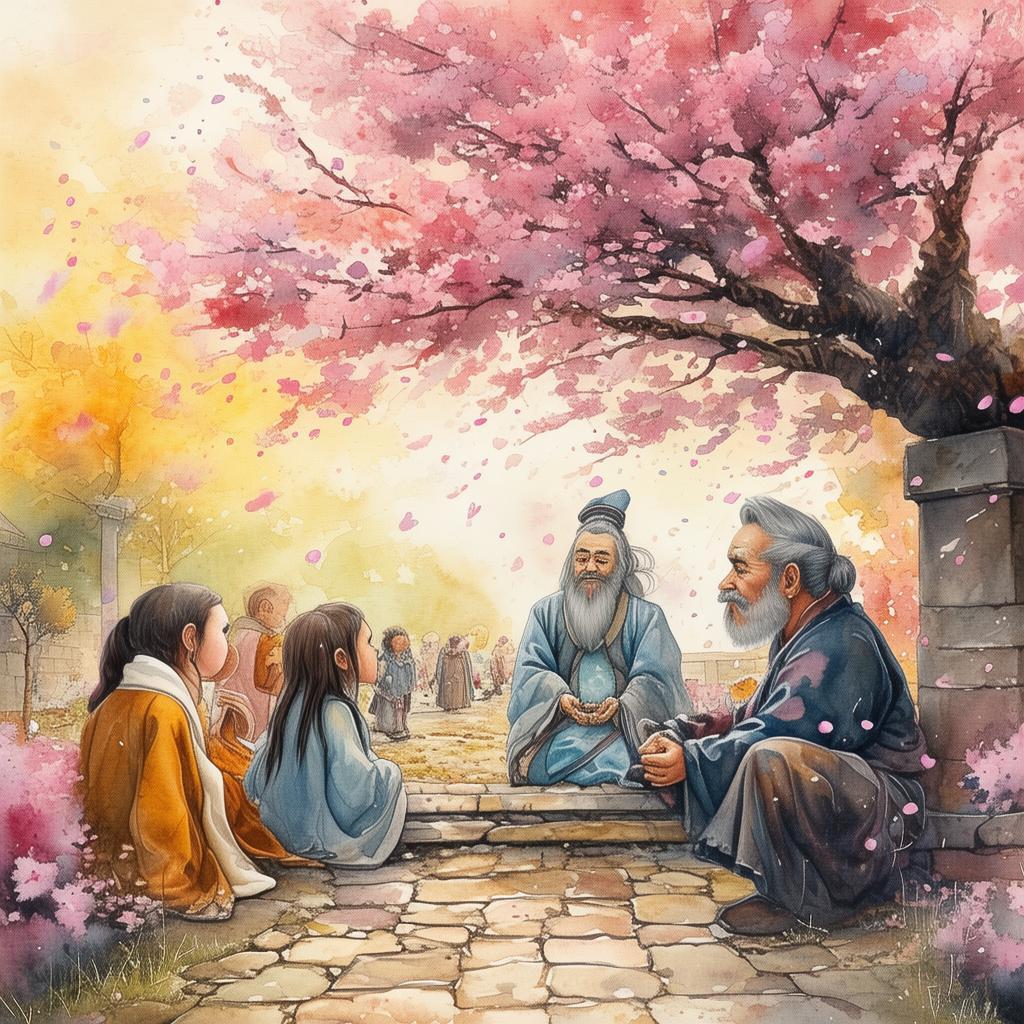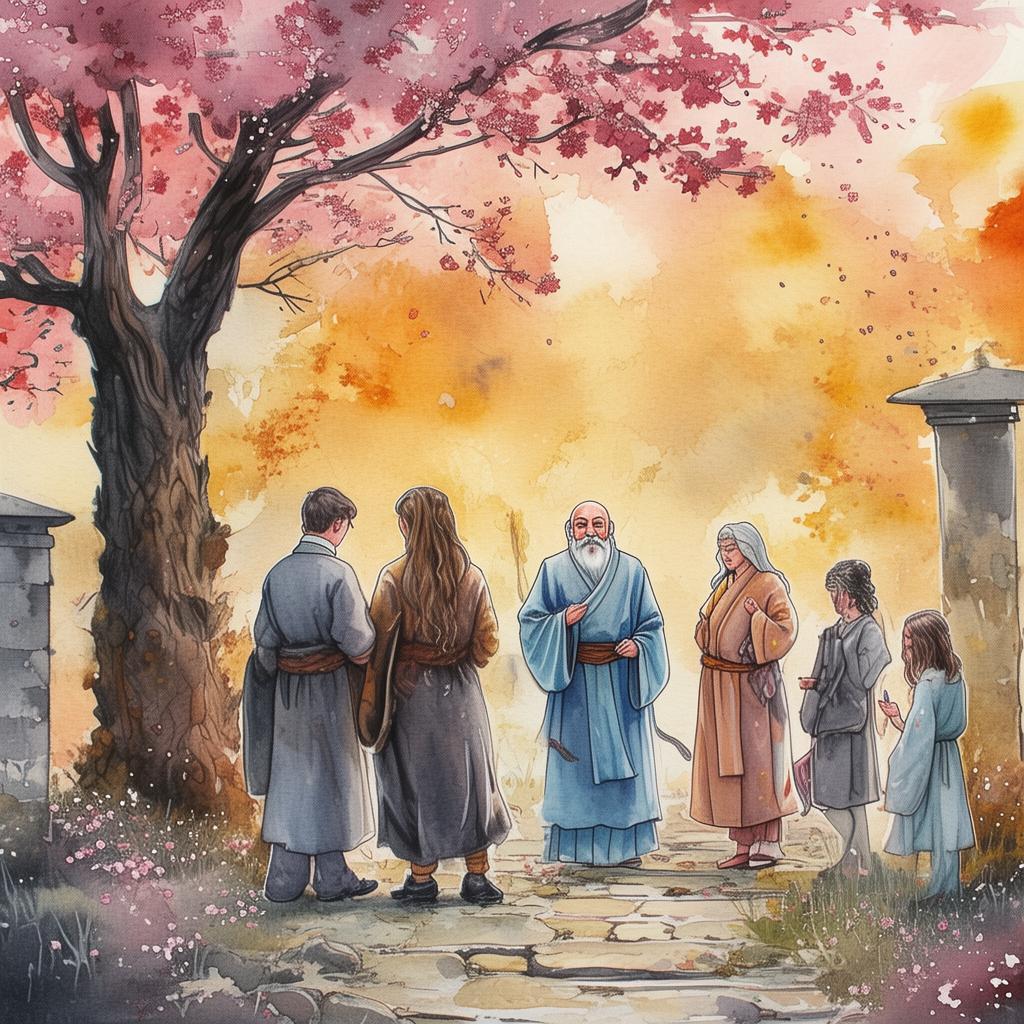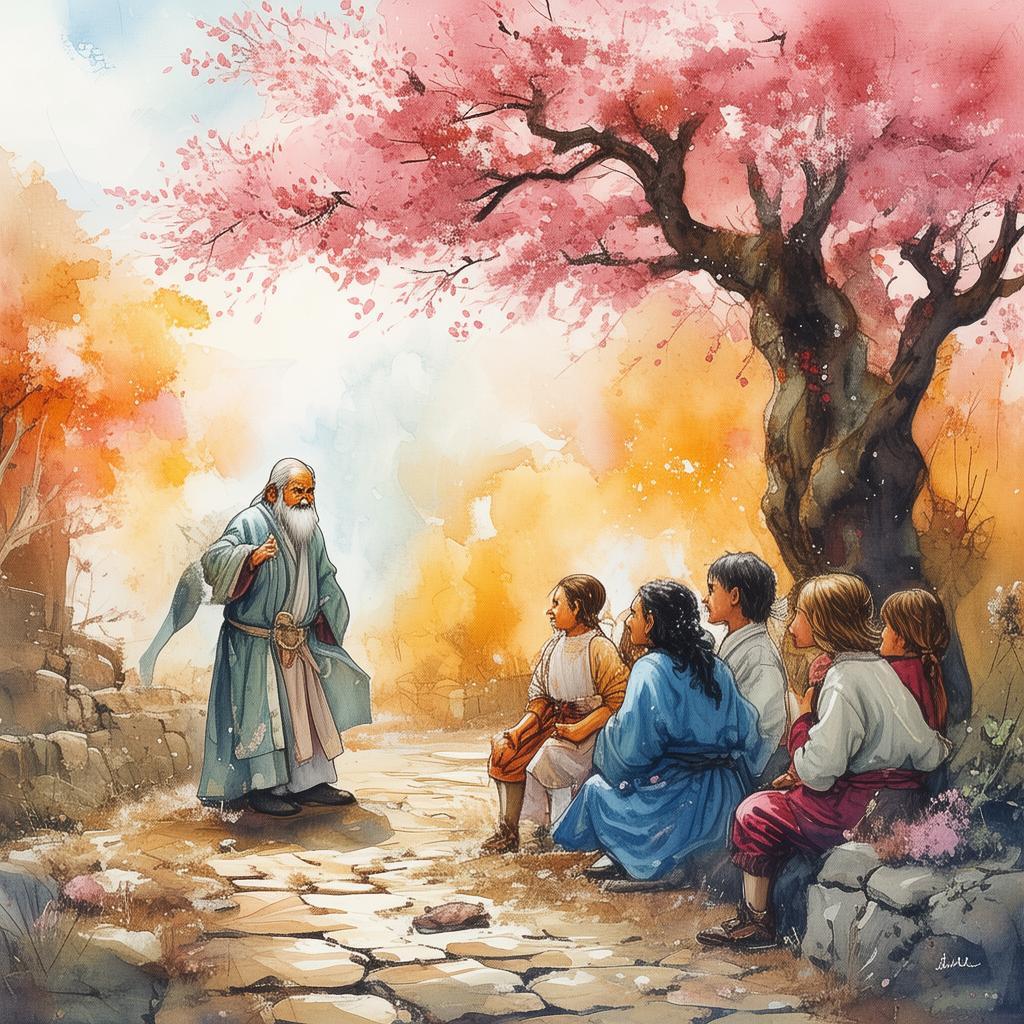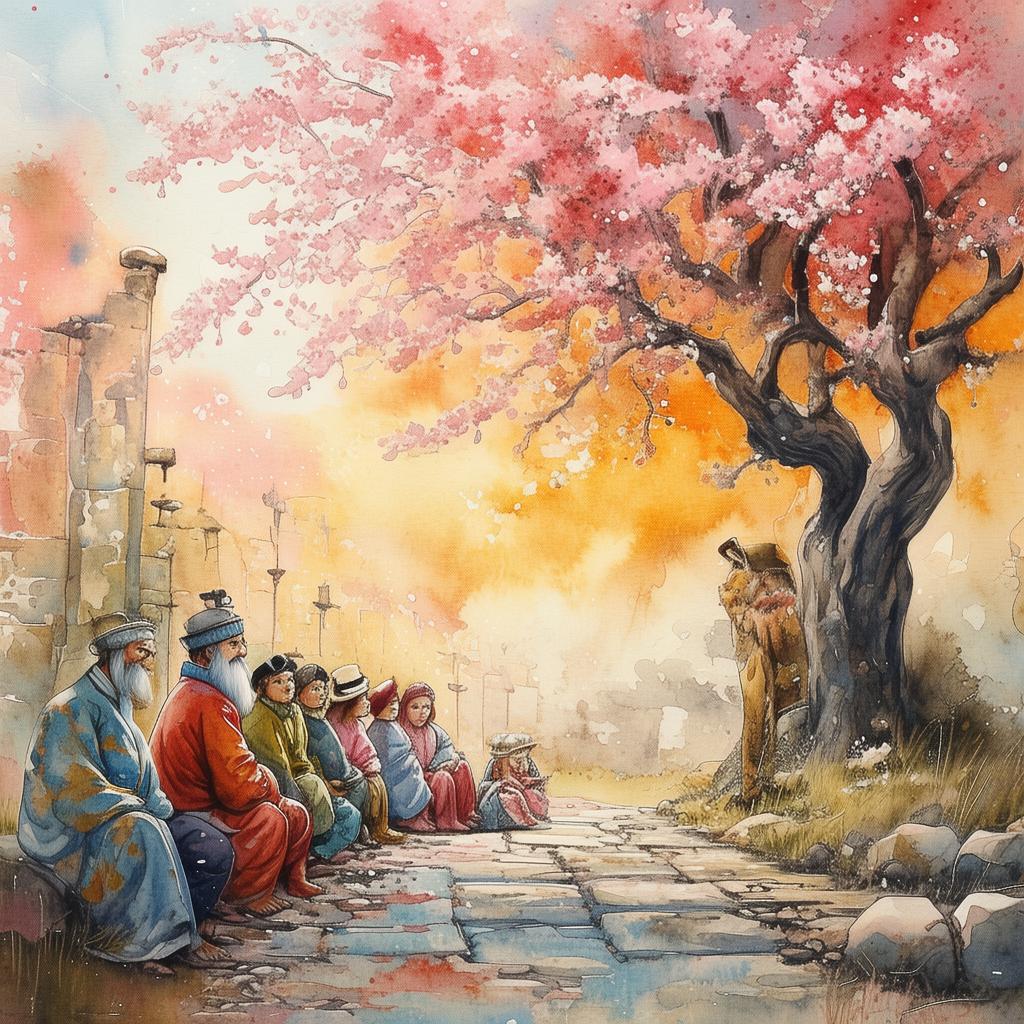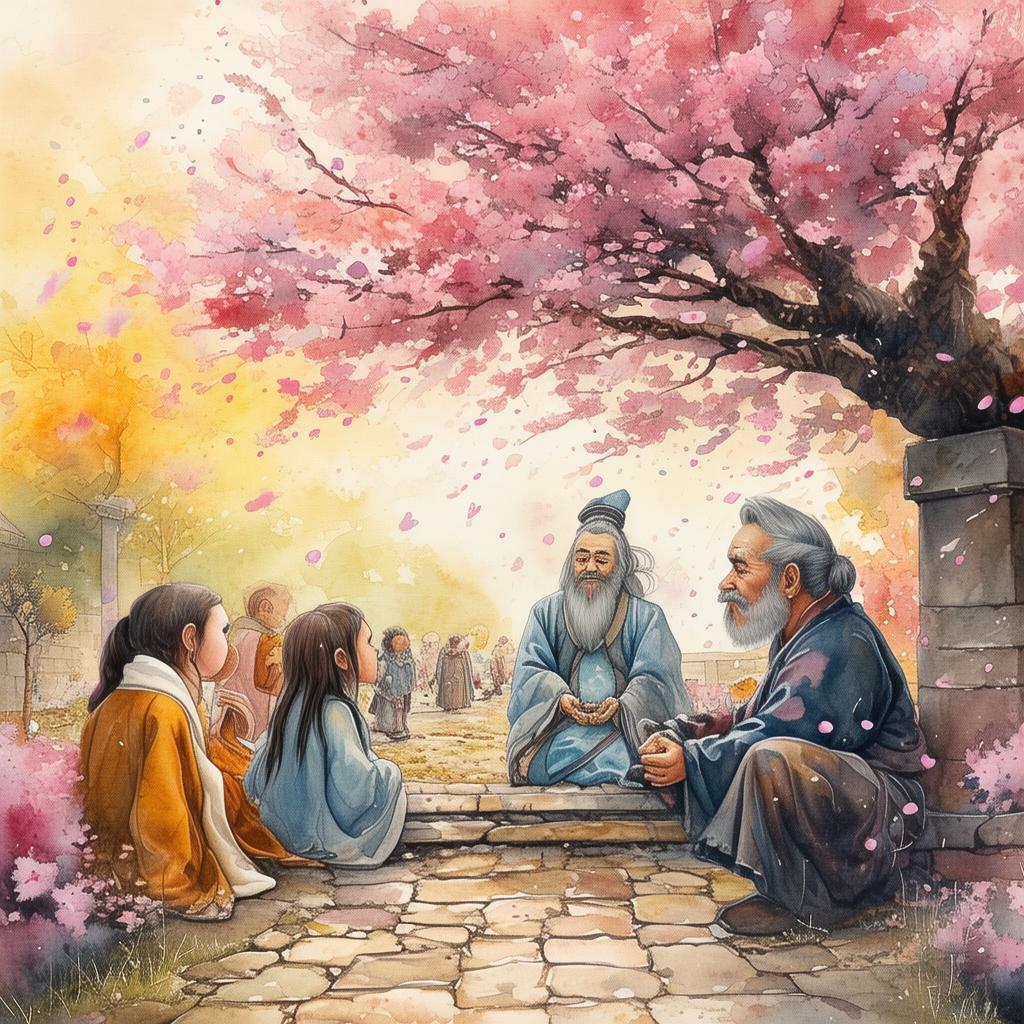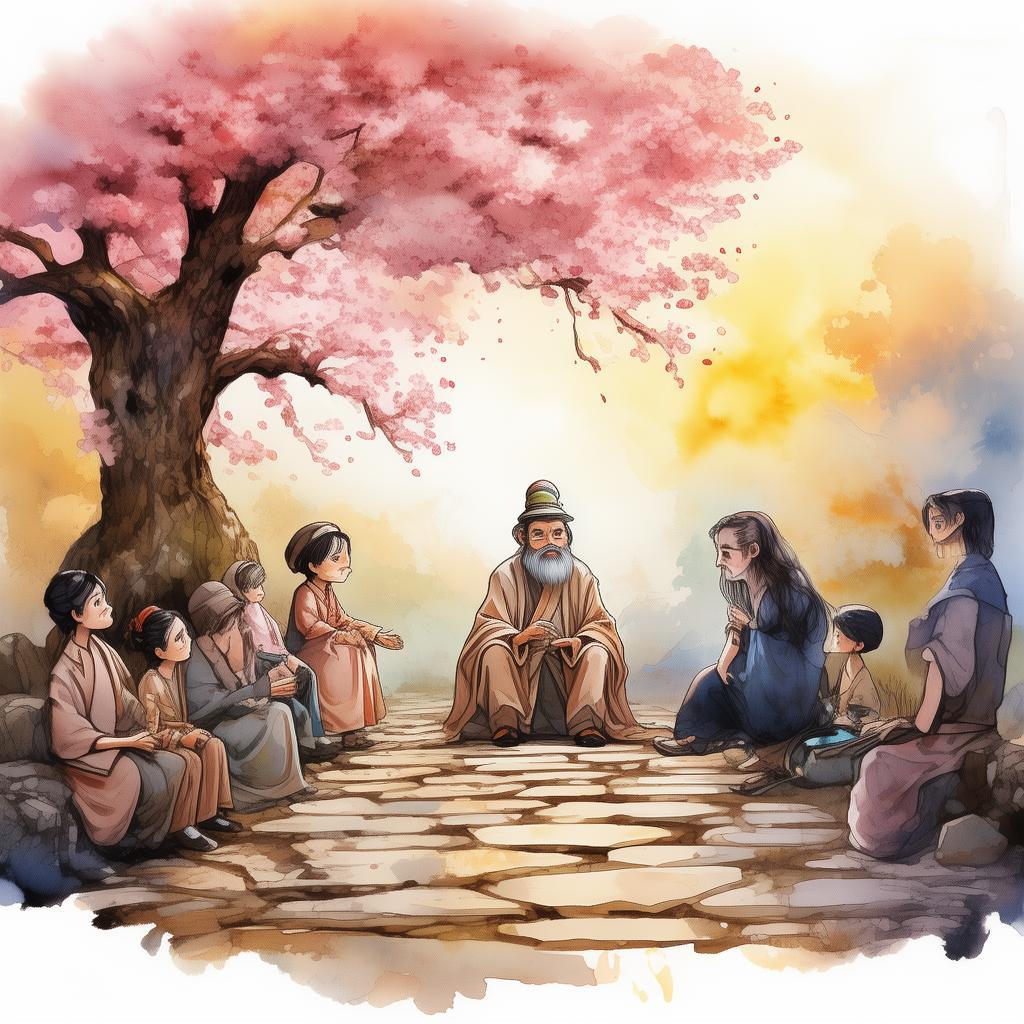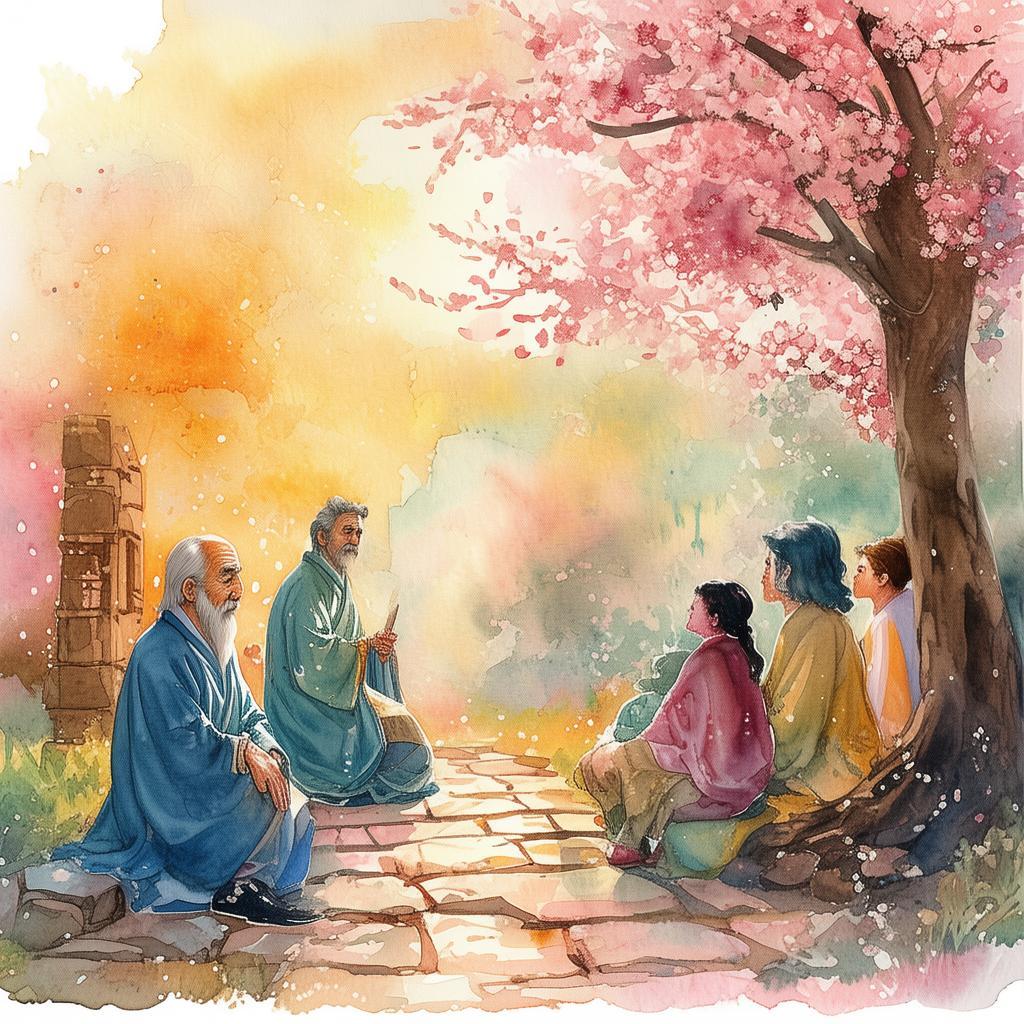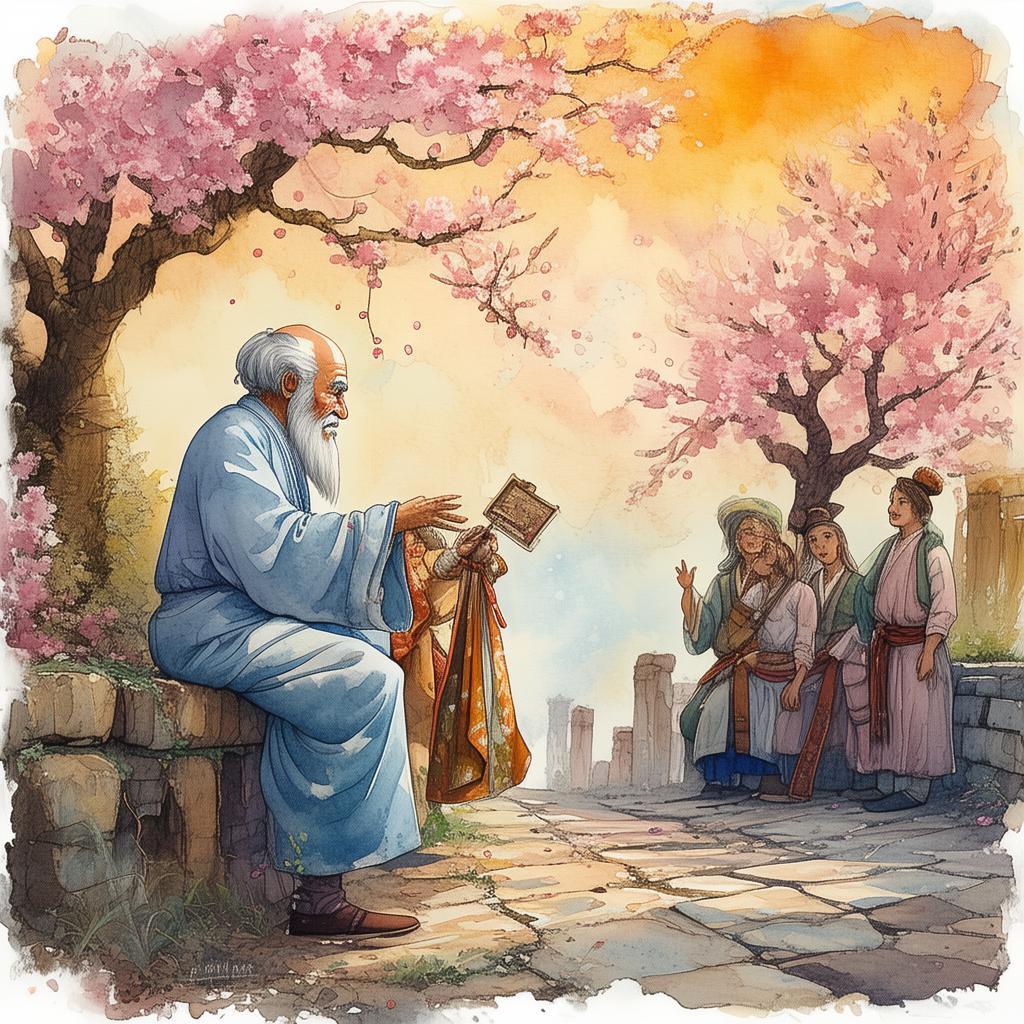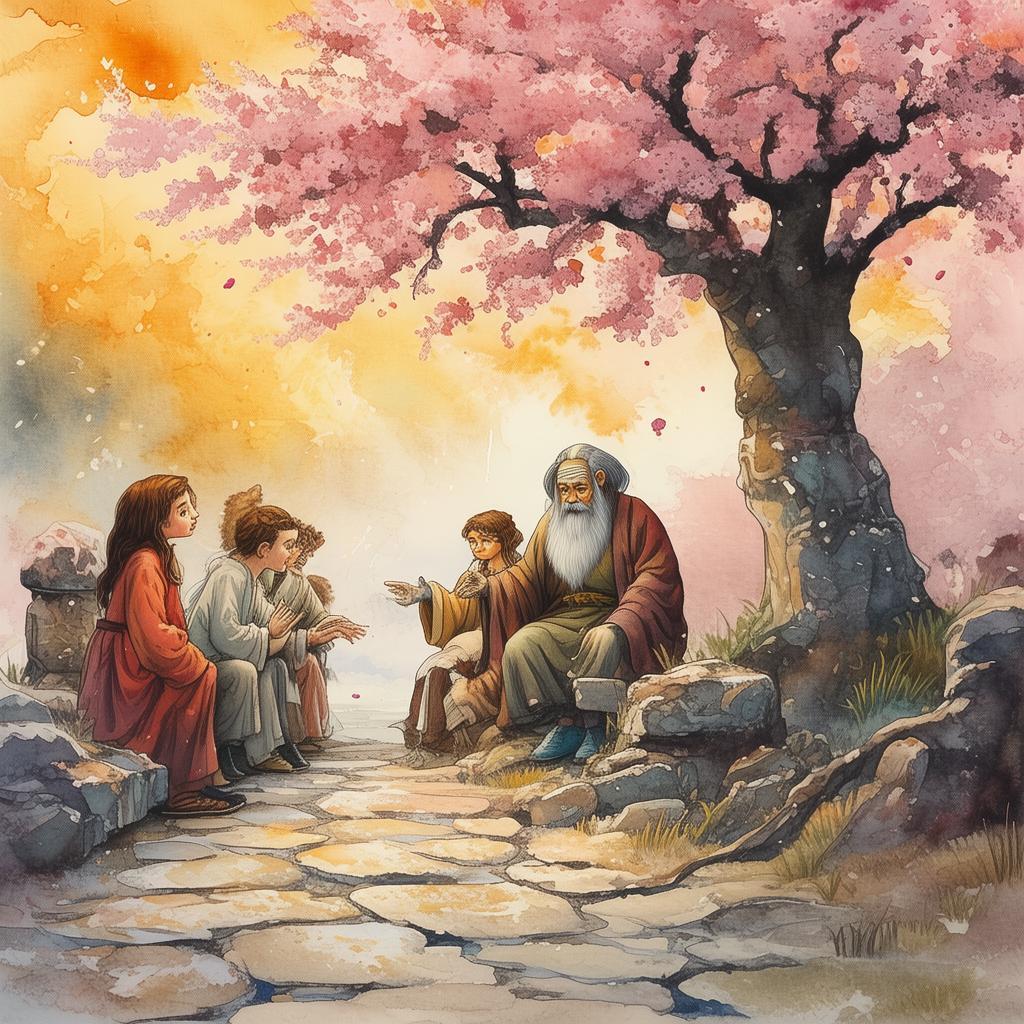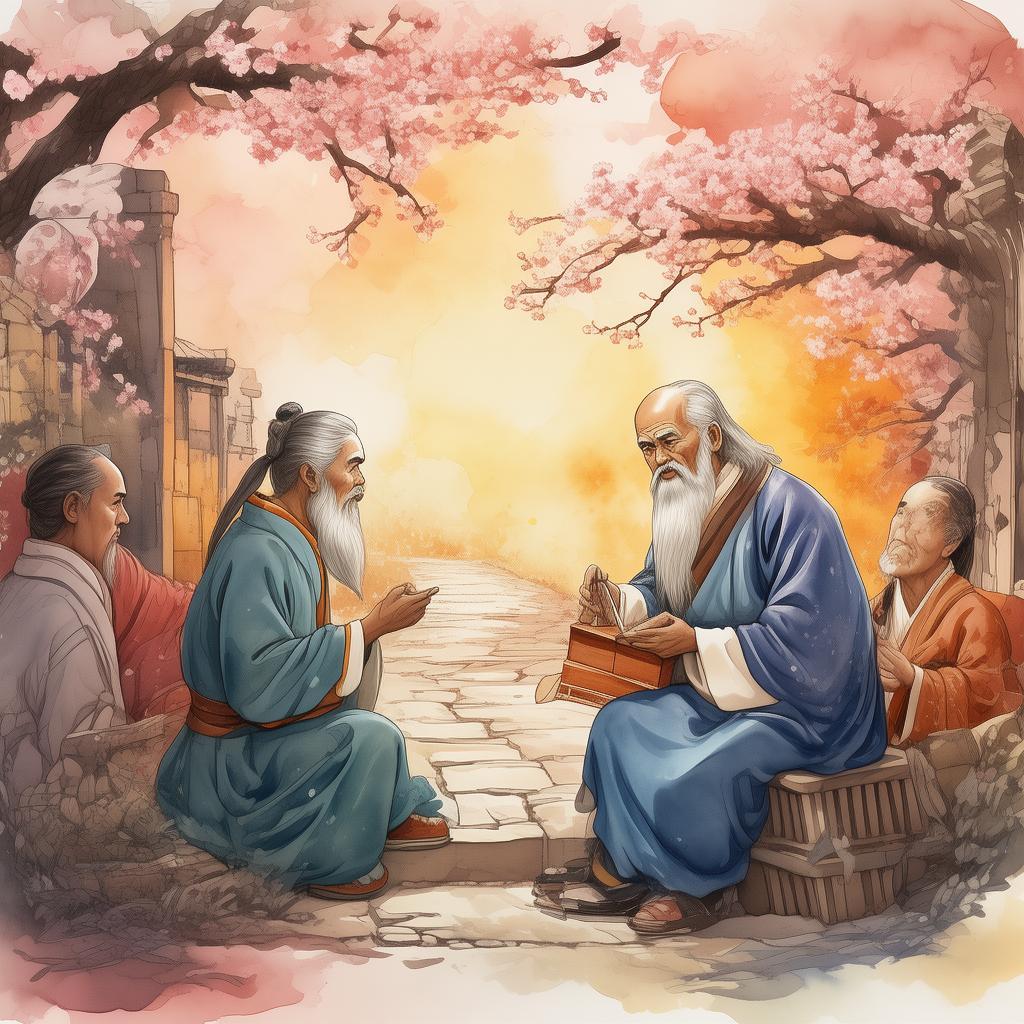The Pea Princess' Riddle: A Historical Enigma
In the heart of the ancient Chinese empire, there lay a grand palace that was the envy of all. The palace was ruled by Empress Ling, a wise and just ruler, who had managed to maintain peace and prosperity for years. However, as the empire expanded, so did the ambitions of its neighboring kingdoms. Among these was the Kingdom of Shu, whose ruler, Prince Jing, was rumored to be plotting an invasion.
The empire's capital was home to the most brilliant minds, and Empress Ling was no exception. She had a daughter, Princess Hua, whose intellect was matched only by her grace and beauty. The princess was known throughout the land for her kindness and wisdom, and it was said that she could solve any riddle posed to her.
One evening, as the moon hung low in the sky, a message arrived at the palace. It was a riddle, written in a script that was both elegant and cryptic, and it bore the seal of the Kingdom of Shu. The riddle was as follows:
"Beneath the silk canopy, a silent watchman stands.
In the heart of the palace, he guards the empire's crown.
If you seek the truth, you must not speak or shout.
The answer lies within, and it is known to you."
Empress Ling was puzzled by the riddle. It seemed to be a message from Prince Jing, but what did it mean? She called for her daughter, Princess Hua, who was known for her ability to solve riddles.
"Mother," said Princess Hua, "let me have a look."
She took the riddle and pondered for a moment. Then, with a smile, she said, "The answer is the silence of the watchman. He stands guard without speaking, and the watchman is none other than the emperor himself. The heart of the palace is the throne room, and the crown is the symbol of our rule. The answer lies within us, Mother."
Empress Ling nodded in agreement. "Then we must act swiftly, Hua. The riddle is a warning, and Prince Jing is preparing to attack."
The next morning, the palace was abuzz with activity. The Empress gathered her closest advisors and strategists to discuss the situation. Among them was the Grand Minister, a man of great wisdom and experience.
"Your Majesty," he said, "we must be cautious. This riddle could be a ploy to confuse us."
"Indeed," added the Chief Strategist, "but if it is a warning, we must take it seriously. We must prepare for war."
As the days passed, the riddle remained a mystery, but the tension in the palace grew. The Empress, however, remained calm. She knew that her daughter had the key to solving the enigma.
One evening, as the moonlight filtered through the palace windows, Princess Hua was once again alone with her thoughts. She wandered through the gardens, her mind racing with the implications of the riddle. Suddenly, she heard a rustling in the bushes.
"Who's there?" she called out.
A figure emerged, cloaked in shadows. It was an old man, his face etched with years of experience.
"I am an advisor to Prince Jing," he said. "I have come to warn you. The riddle is a test, not a threat. Prince Jing seeks to unite the kingdoms, not to conquer them. He knows that you are wise, and he respects your power."
Princess Hua listened intently, her mind racing. "Then why the riddle?"
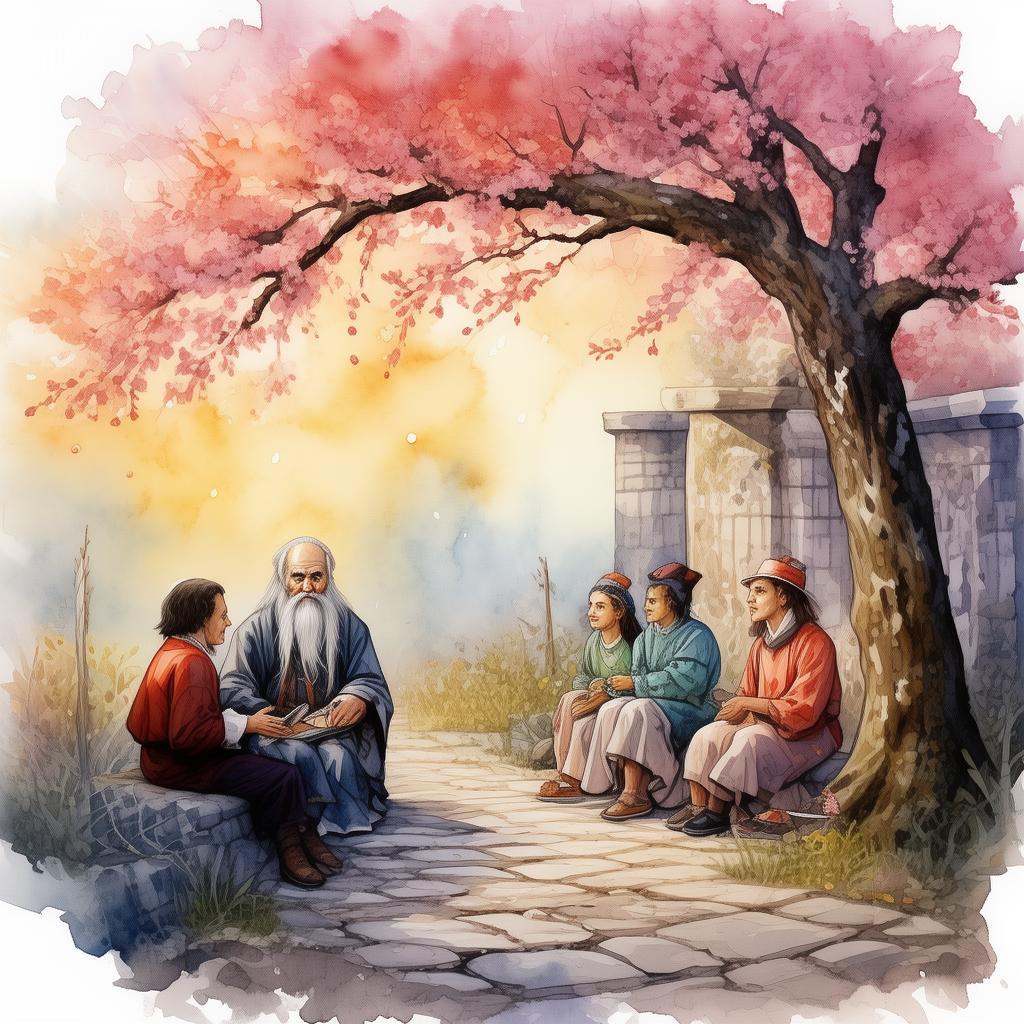
"The riddle is a symbol of peace," the man said. "If you can solve it, we can begin a dialogue. If not, the war will come."
Princess Hua pondered the man's words. She knew that she had to find a way to end the tension between the kingdoms. She returned to the palace, her mind made up.
The next day, she called for an audience with her mother and the advisors. "Mother, I have a proposal," she said. "Let us send a delegation to the Kingdom of Shu. We will meet with Prince Jing and discuss our differences."
The advisors were hesitant, but Empress Ling agreed. "If this is the way to peace, then it is the way we must take."
The delegation set out, and soon they arrived at the court of Prince Jing. The meeting was tense, but as they spoke, a bond began to form between the two rulers. They discussed their mutual interests and their desire for peace. The riddle had been a test, and both had passed.
As the delegation returned to the palace, the kingdom was abuzz with news of the peace agreement. The Empress and her daughter were hailed as heroes, their wisdom and courage having saved the empire from war.
The story of the Pea Princess' Riddle became a legend, a tale of wisdom and courage that was told for generations. It was said that the answer to the riddle was not just a silent watchman, but the silence of the heart, the power of communication, and the strength of unity.
And so, the empire flourished, and the kingdoms lived in peace, their fates forever intertwined by the riddle that had brought them together.
✨ Original Statement ✨
All articles published on this website (including but not limited to text, images, videos, and other content) are original or authorized for reposting and are protected by relevant laws. Without the explicit written permission of this website, no individual or organization may copy, modify, repost, or use the content for commercial purposes.
If you need to quote or cooperate, please contact this site for authorization. We reserve the right to pursue legal responsibility for any unauthorized use.
Hereby declared.
